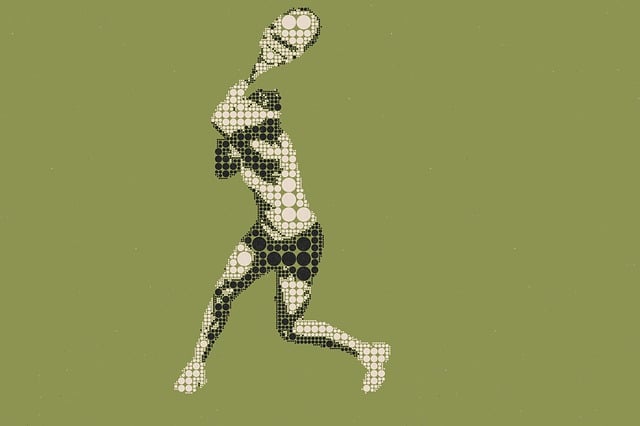Athletic recovery involves strategic processes to rejuvenate physically and mentally after exercise, focusing on tissue repair and energy system restoration. Kratom, a natural herb, has gained attention as a potential aid due to its muscle-relaxing and anti-inflammatory properties, aiding post-workout recovery without impairing mental clarity. However, its use is restricted in high-performance environments like the military, where detection on drug tests is a concern, emphasizing the need for expert guidance when considering kratom for athletic recovery strategies.
“In the pursuit of optimal athletic performance, efficient recovery is paramount. This article delves into the science-backed strategy of utilizing Kratom coaching for enhanced athletic recovery. We explore the challenges athletes face and how this ancient herb may offer relief from post-workout soreness and stress. Additionally, we address a critical question: does kratom show up on military drug tests? Uncovering insights to help athletes make informed decisions regarding their recovery regimen.”
- Understanding Athletic Recovery and Its Challenges
- Exploring Kratom as a Potential Aid for Recovery
- Does Kratom Affect Military Drug Tests? An Insight for Athletes
Understanding Athletic Recovery and Its Challenges
Athletic recovery is a complex process that involves restoring physical and mental well-being after intense exercise or training sessions. It’s not just about getting rest; it’s a strategic approach to repair and rebuild muscles, joints, and energy systems stressed during activity. For athletes, especially those in competitive environments, navigating this recovery landscape can be challenging. The pressure to perform, coupled with demanding training schedules, often leads to issues like delayed-onset muscle soreness, fatigue, and increased risk of injury if not properly addressed.
One significant challenge for athletes is balancing recovery with the need to stay focused and alert, especially those in high-performance sports. This is where kratom coaching can play a unique role. Unlike traditional methods that may solely focus on rest and isolation, kratom—a natural herb known for its diverse effects—has gained attention for potentially supporting athletic recovery without compromising mental acuity. Notably, it’s important to consider that some sporting organizations, including military branches, strictly prohibit substances like kratom in their drug testing programs (does kratom show up on military drug tests), underscoring the need for thorough research and professional guidance when exploring its application in recovery strategies.
Exploring Kratom as a Potential Aid for Recovery
Kratom, a natural herb with a growing reputation in wellness circles, has shown promise as an aid for athletic recovery. Beyond its traditional uses, research suggests that kratom’s unique blend of alkaloids can support muscle relaxation and reduce inflammation, both key factors in accelerating post-workout recovery. For athletes looking to optimize their performance and shorten rest times, this could be a game-changer.
The potential benefits extend further, especially for those who engage in intense training regimens. Kratom’s calming effects may help ease the mental fatigue that often accompanies vigorous exercise, allowing athletes to maintain focus and drive during subsequent workouts. Additionally, its mild analgesic properties might alleviate post-exercise pain and soreness, making it a compelling option for those seeking an alternative to traditional recovery methods. However, it’s crucial to note that while kratom has shown promise, further research is needed to fully understand its effects on athletic performance and recovery, particularly regarding concerns about whether it could potentially show up on military drug tests due to its opioid-like properties.
Does Kratom Affect Military Drug Tests? An Insight for Athletes
Kratom, a natural herb known for its pain-relieving and mood-enhancing properties, has gained popularity among athletes as a recovery aid. However, a common concern is whether kratom use can impact military drug tests, given the strict regulations around substance usage in athletic competitions. The short answer is that kratom’s detection on military drug tests is context-dependent. Kratom metabolites are relatively small and may not be picked up by standard urinalysis methods used in many military screenings. However, more advanced testing methods can detect kratom use, especially if consumed in high doses or frequently.
For athletes considering kratom as part of their recovery regimen, transparency is key. Informing coaches and medical staff about kratom usage can help ensure a smooth process during drug tests. While some military branches may have specific policies regarding herbal supplements, many acknowledge the natural origin and therapeutic potential of kratom, especially when used responsibly for post-workout recovery rather than performance enhancement.
Kratom has emerged as a promising natural solution for athletic recovery, offering a unique approach to managing pain and stress. While its effectiveness in enhancing recovery is evident, it’s crucial to address concerns regarding its detectability in drug tests, especially for athletes. Research suggests that kratom may not consistently show up on military drug tests, making it a viable option for those seeking alternative recovery methods. However, as with any supplement, proper dosage and individual response vary, so consulting professionals is essential. By integrating kratom coaching into their routines, athletes can potentially optimize recovery, reduce downtime, and improve overall performance while navigating the intricacies of post-workout recovery and drug testing regulations.














